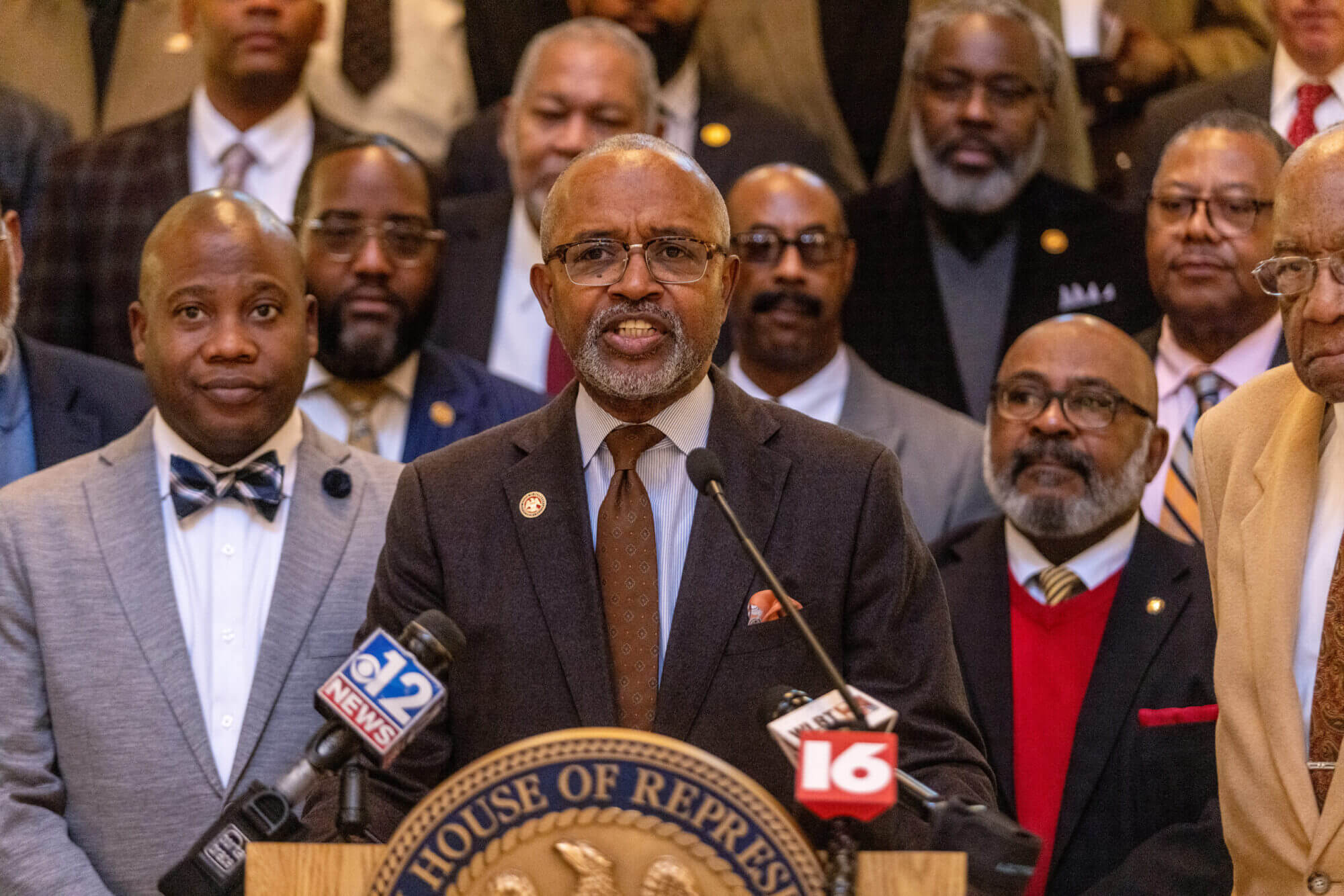

Democrats broke the Republican Party’s two-thirds majority in the Mississippi Senate on Tuesday by gaining two new seats, eroding the GOP’s grip on the 52-member chamber for the first time in over a decade.
But the GOP still has a strong hold on the Mississippi Legislature and can override Democrats on all but a few types of votes if they caucus, in both the House and Senate.
In a reconfigured Senate district in northwestern Mississippi, voters elected Democrat Theresa Gillespie Isom over Republican Charlie Hoots. In another redrawn district in the Pine Belt region around Hattiesburg, Democrat Johnny DuPree defeated Republican Anna Rush.
Republicans previously represented these two areas, but a federal court earlier this year determined the state violated the Voting Rights Act and ordered the state to redraw them into majority-Black districts.
Mississippi 2025 special elections: See the results
Two Senate races, one in the Jackson area and one in the Delta, are still undecided because a Dec. 2 runoff will decide the winners, but they are not expected to further tilt partisan power.
In both of these races, the elections are nonpartisan, though the winner will likely declare a partisan affiliation after taking office. In both elections, the candidates are seeking to replace longtime Democratic senators.
Mississippi had a mix of partisan and nonpartisan special elections Tuesday. Special elections are nonpartisan when an office holder leaves during a term. But in the elections for the redrawn districts, candidates ran with party labels.
State Rep. Cheikh Taylor of Starkville, chairman of the Mississippi Democratic Party, said Tuesday’s results show Mississippi can be a battleground state that is no longer “a foregone conclusion.”
However, Taylor noted that the Democratic victories were only possible because federal judges found that Mississippi had violated the federal Voting Rights Act – something the U.S. Supreme Court may limit in the future.
“If the Supreme Court dismantles these protections, we risk silencing the very voices that made last night’s historic outcome possible,” Taylor said. “As voters continue to reject Trump’s agenda in 2026 and 2027, we must protect the fundamental right that makes change possible: the right to vote.”
Republicans will have 34 senators, and Democrats will likely have 18 when the Mississippi Legislature convenes in January for its 2026 session. If the Senate strictly votes along party lines on an issue, Democrats could prevent Republicans from accomplishing a small number of things.
In Mississippi, it takes a two-thirds vote of both legislative chambers to suspend parliamentary rules and deadlines, amend the Mississippi Constitution and override a governor’s veto.
Republicans still hold a three-fifths supermajority, which means they can make decisions about taxes without having any support from Democrats.

While Republicans will still control a significant portion of the legislative agenda over the next two years, Democrats could utilize these gains to prevent Republican leadership from reviving legislation that had died on key deadlines or block Republicans from amending parts of the state constitution.
Heather Williams is president of the Democratic Legislative Campaign Committee, an organization that invested heavily in Mississippi’s elections. She celebrated the Tuesday victories and welcomed more Democrats to the Legislature.
“Mississippians are sending a clear message that, from blue states to red states, voters are ready to stand up against Republicans’ extreme agenda and hold them accountable,” Williams said.
Democrats also flipped a Republican seat in the House when Democrat Justin Crosby defeated Republican state Rep. Jon Lancaster in the Chickasaw County area of northeastern Mississippi.
Tuesday’s elections mean that two more women will join the Senate in January.
Isom, elected from DeSoto County, won her election outright. In a special election to fill the seat vacated by Jackson Mayor John Horhn, two women, Letita Johnson and Kamesha Mumford, are advancing to the runoff.
One of the women in the Senate, Republican Robin Robinson of Jones County, lost a party primary for this round of special elections.
- Scientists: Genetic analysis could speed restoration of American chestnut trees, from Maine to Mississippi - February 14, 2026
- NAACP threatens to sue Elon Musk’s xAI over pollution in Mississippi - February 13, 2026
- School consolidation bill dies without a vote in Mississippi Senate - February 13, 2026